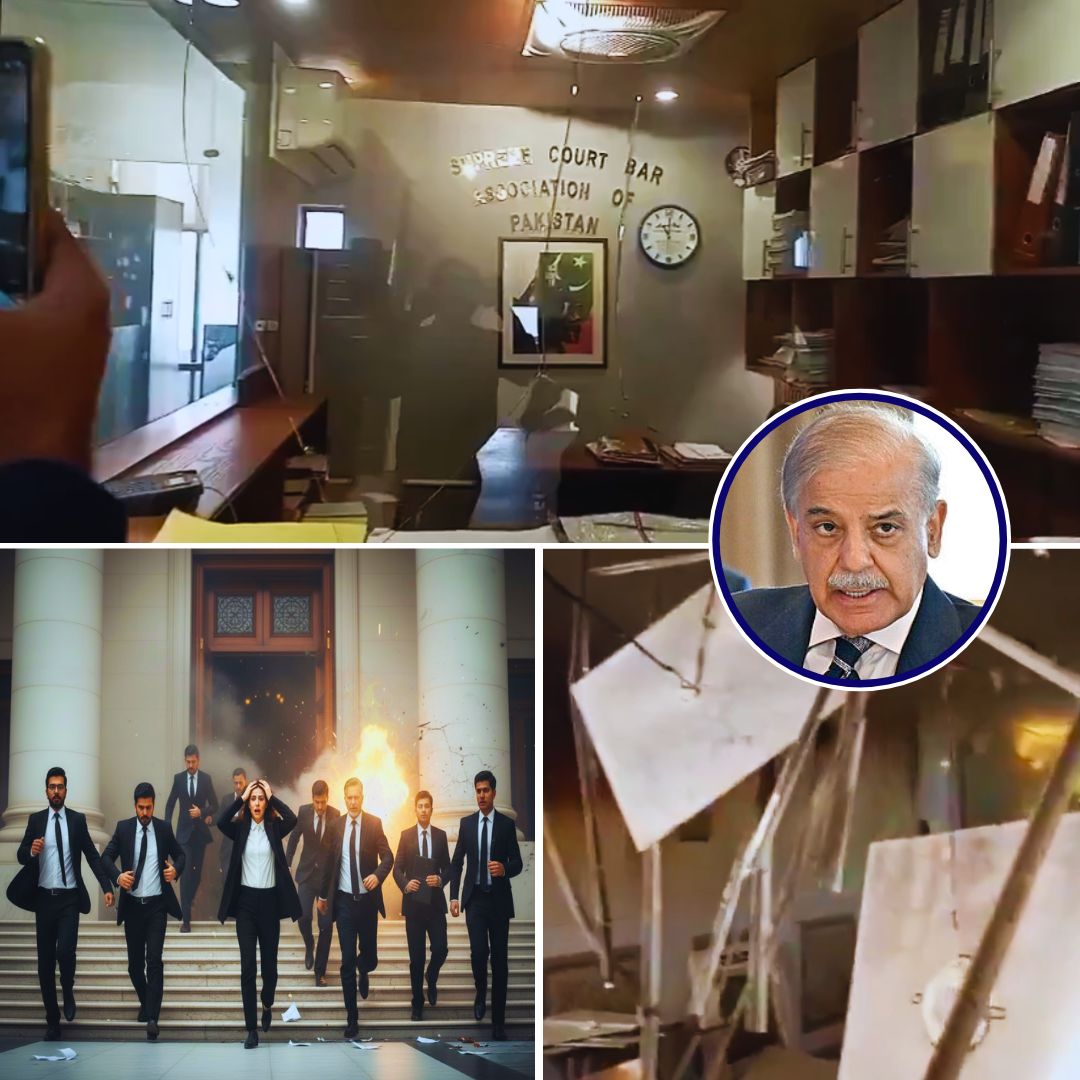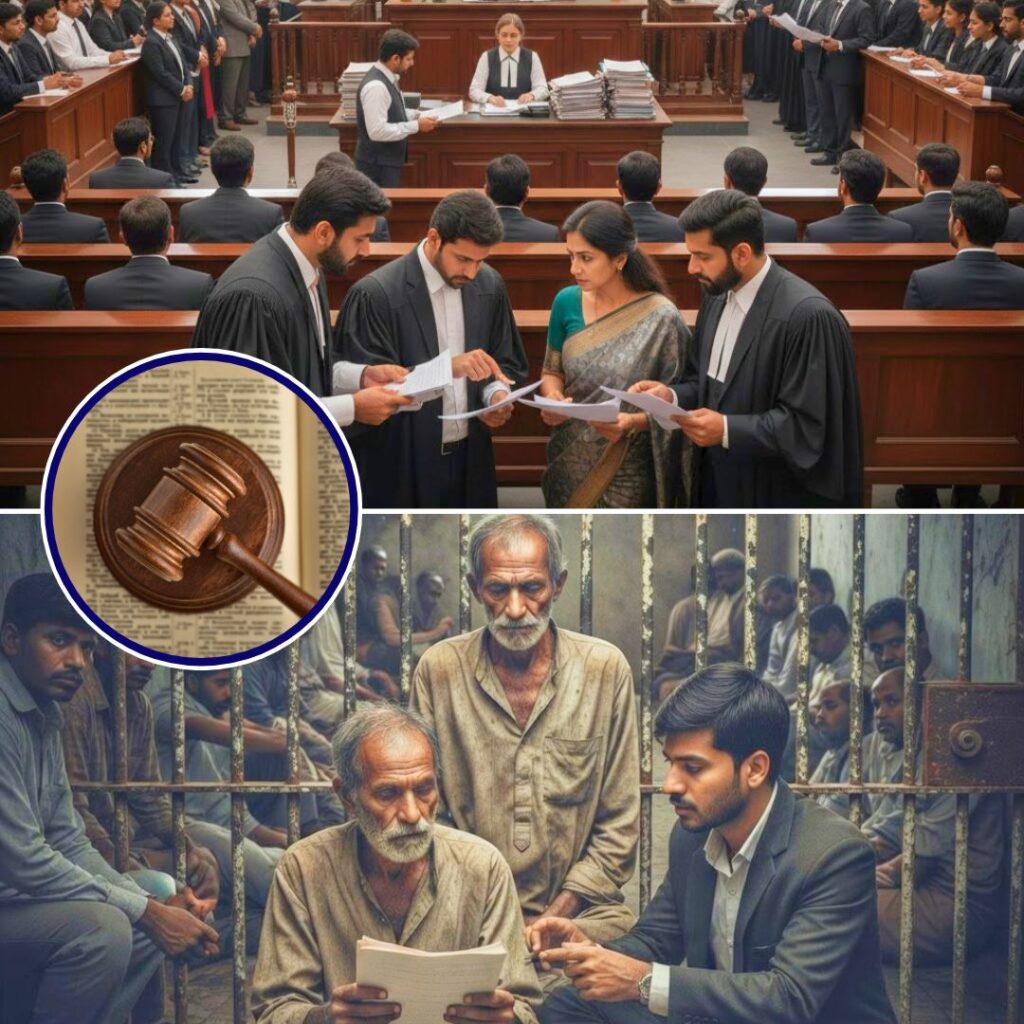Twelve people were rushed to hospital after a powerful gas cylinder explosion struck the basement cafeteria of Pakistan’s Supreme Court in Islamabad on Tuesday morning, November 4, 2025.
The blast disrupted court proceedings, sent shockwaves through the complex, and triggered an urgent evacuation of judges, staff, and lawyers.
Authorities report that most of those injured were air-conditioning technicians working on the site.
The incident, which preliminary probes attribute to a days-long gas leak, has raised concerted calls for safety reforms amid similar recent accidents in official buildings. Two people remain critically injured.
Chaos and Rapid Response: Inside the Supreme Court Blast
The explosion occurred around 10:55 am local time in the basement canteen as maintenance workers were repairing the court’s central air-conditioning unit. Eyewitnesses described a deafening sound echoing through lower floors, shattering tiles and sending furniture flying.
“There had been a gas leak in the canteen for several days,” said Islamabad’s Inspector General of Police, Ali Nasir Rizvi, at the scene. “Most injuries affected the technicians working on the AC, with one of them suffering severe burns over 80 percent of his body. The condition of two individuals is critical.”
Rescue protocols were immediately activated. Lawyers and court officials were quickly moved outside to safety, while emergency services and bomb disposal squads secured the complex.
Legal proceedings in adjacent courtrooms were halted, including a case being heard by Justices Ali Baqar Najafi and Shahzad Malik. Within minutes, rescue teams had transferred twelve injured people to hospitals, ensuring prompt medical attention and checking for structural risks in the impacted zone.
Three victims were sent to the Pakistan Institute of Medical Sciences (PIMS), while nine others were treated at the Polyclinic Hospital. Authorities soon cordoned off the canteen and cafeteria area pending a full forensic assessment.
Safety and Accountability: A Pattern of Neglect?
Initial investigations suggest the blast was triggered by a long-standing gas leak, exacerbated as repairs were underway on the AC system. While cylinder mishaps are, regrettably, not rare in urban Pakistan, such an incident in the Supreme Court-a symbol of national justice and authority-has alarmed officials and the public alike.
The extent of injuries and interior damage, as revealed by eyewitness videos and photos circulating online, has provoked demands for systemic safety audits and stricter protocol enforcement across government buildings.
Inspector General Rizvi underscored that “experts confirmed it was a gas explosion,” reminding authorities and contractors to routinely check for leaks and ensure workplace safety.
The bomb disposal squad’s findings have further emphasised the need for thorough investigations into maintenance routines and gas cylinder management-areas where oversight has apparently lapsed.
Islamabad police officials, speaking after a security review at the site, stated, “Security has been tightened, and access to the affected areas remains restricted as forensic teams continue their assessments.”
Recent months have seen a spate of fire and explosion-related accidents in Pakistan’s federal facilities, with critics blaming poor compliance with safety regulations and insufficient maintenance budgeting.
The Supreme Court blast, which interrupted normal operations for several hours and left lasting damage to the canteen and cafeteria zone, offers a stark reminder that even the most secure institutions are vulnerable without rigorous preventive measures.
Pakistan’s judiciary and administrative leaders now face mounting pressure to ensure repairs, audits, and workplace safety culture improvements nationwide.
Human Impact: Voices From the Scene
The immediate aftermath was marked by scenes of confusion, distress, and solidarity. Staff and visitors recounted racing up staircases and toward exits, fearing further explosions. “We heard a huge bang, saw smoke, and simply ran for our lives,” said one civil servant present on the lower floor.
Medical teams, arriving within minutes, praised the swift actions of court officials. “Had evacuation been delayed, the number of casualties could have been much higher,” said a PIMS hospital spokesman.
Social media videos have shown the widespread concern within legal and government circles across Islamabad as workers and supporters called for prayers and shared updates on the condition of the injured.
On the security front, the explosion prompted a full lockdown of the Supreme Court’s basement corridors and restricted access to peripheral government buildings.
Islamabad’s police and bomb disposal unit, while ruling out sabotage or terrorism, emphasised the urgency of updated safety protocols, noting that even minor leaks left unchecked can prove catastrophic.
The Logical Indian’s Perspective
The Supreme Court blast is a wake-up call to South Asia’s public institutions: safety must be woven into the fabric of daily operations, and neglected workplaces put everyday lives at risk.
Quick rescue and emergency response demonstrated the potential for compassion and collective action, but deeper systemic reform remains essential.
Empathy for victims and clear accountability from leadership must guide all future decisions in pursuit of safer, more just societies.












